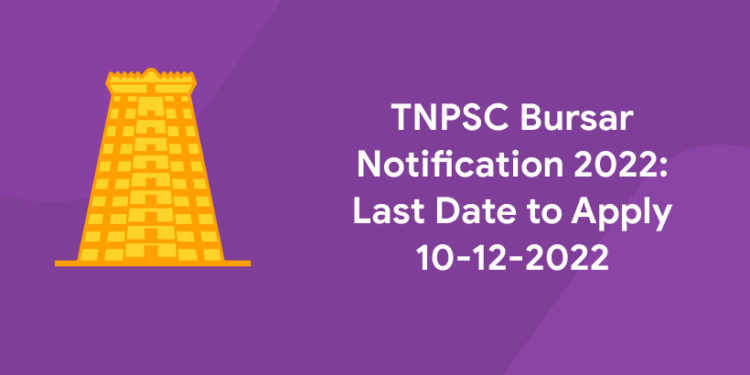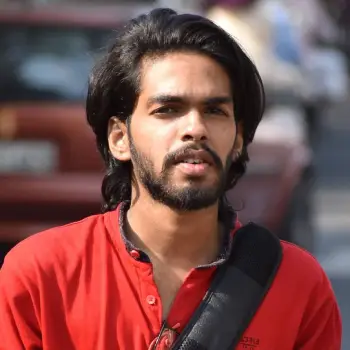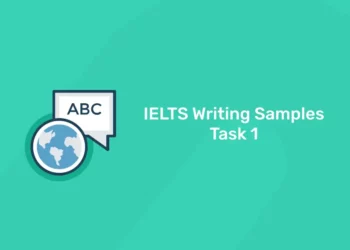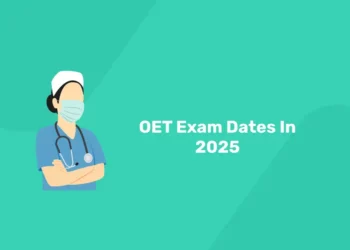Table of Contents
TNPSC Bursar Notification 2022: TNPSC Bursar Notification 2022 Applications are only being accepted online up to 10.12.2022 from qualified candidates for direct hiring to the position of Bursar within the Tamil Nadu Educational Service. To fill their current employment vacancies, TNPSC is gathering application forms from applicants with a postgraduate degree in public administration or a postgraduate degree in business administration (MBA). To learn everything there is to know about the TNPSC Bursar Notification 2022, read the article.
TNPSC Bursar Notification 2022 Overview
| TNPSC Bursar Notification 2022 | |
| Organization Name: | Tamil Nadu Public Service Commission |
| Notification No: | Advertisement No.638
Notification No. 32/2022 Dated: 11.11.2022 |
| Job Category: | Tamilnadu Govt Jobs |
| Employment Type: | Regular Basis |
| Total No of Vacancies: | 05 Bursar Posts |
| Place of Posting: | Tamilnadu |
| Starting Date: | 11.11.2022 |
| Last Date: | 10.12.2022 |
| Apply Mode: | Online |
| Official Website | https://www.tnpsc.gov.in/ |
TNPSC Bursar Notification 2022 PDF
To fill the positions of Permanent Staff in the Tamil Nadu Education Service, the Tamil Nadu Public Service Commission is accepting applications from qualified individuals. Details about Tamil Nadu government jobs are provided here. To obtain the PDF notification, simply click on the link below.
Download TNPSC Bursar Notification PDF
TNPSC Bursar Notification 2022: Vacancy
TNPSC invites applications for the following posts
| Name of the post | Name of the service | No. of vacancies |
| Bursar in Government Arts & Science Colleges and Colleges of Education (Post Code No. 3010) | Tamil Nadu Educational Service (Service Code No.024) | 05 |
TNPSC Bursar Notification 2022 Apply Online Link
Candidates who are interested in TNPSC Accountant Jobs can apply for this job regularly. This TNPSC Bursar Online Application Form will be available on the official website from 11.11.2022 to 10.12.2022. Click on below online link to apply TNPSC Bursary below
TNPSC Bursar Apply Online Link
TNPSC Bursar Notification 2022: Important Dates
| Events | Dates | |
| Date of Notification | 11.11.2022 | |
| Last date for submission of online application | 10.12.2022 | |
| Application Correction Window Period | From 15.12.2022 12.01 AM to 17.12.2022 11.59 PM | |
| Date of Examination (Computer Based Test) | ||
| Bursar in Government Arts & Science Colleges and Colleges of Education | Paper-I : Subject paper Public Administration (PG Degree Standard) Or Business Administration (PG Degree Standard) | 10.03.2023 09.30 AM to 12.30 PM |
| Paper – II
PART A Tamil Eligibility Test (SSLC Std) and PART B General Studies (Degree Std) |
10.03.2023 02.30 PM to 05.30 PM | |
Download App and practice for TNPSC Here
TNPSC Bursar Notification 2022: Salary
| Name of the post | Name of the service | Scale of pay |
| Bursar in Government Arts & Science Colleges and Colleges of Education (Post Code No. 3010) | Tamil Nadu Educational Service (Service Code No.024) | Rs.56,100 – 2,05,700 (Level 22) (Revised scale) |
TNPSC Bursar Notification 2022: Eligibility
Candidates should have completed Master’s Degree in Public Administration and should have experience as Administrative Staff / Officers in Public Sector Undertakings in finance or administrative matters.
TNPSC Bursar Notification 2022: Age Limit
Candidates maximum age not exceeding 37 years @ SCs, SC(A)s, STs, MBC/DCs, BC(OBCM)s, BCMs and destitute widows of all categories and 32 years @ ‘Others’ [ie. Candidates who do not belong to SCs, SC(A)s, STs, MBCs/DCs, BC(OBCMs) and BCMs].
| SI No | Category of Applicants | Maximum Age (Should not have completed) |
| 1. | SCs, SC(A)s, STs, MBC/DCs, BC(OBCM)s, BCMs and Destitute Widows of all categories. | 37 years @ |
| 2. | ‘Others’ [ie candidates not belonging to SCs, SC(A)s, STs, MBCs/DCs, BC(OBCM)s and BCMs] | 32 years @ |
Download App and practice for TNPSC Here
TNPSC Bursar Notification 2022 Syllabus
PUBLIC ADMINISTRATION
POST GRADUATE DEGREE STANDARD
Unit-I: Introduction:
1. Meaning, Nature, Scope and importance of Public Administration.
2. Politics – Administration Dichotomy.
3. Evolution of Public Administration and its Present Status.
4. New Public Administration – New Public Management.
5. Impact of Liberalisation, Privatization and Globalization on Public
Administration.
6. Good Governance.
Unit -II: Organization and Management
1. Meaning and Importance of Organization
2. Bases of Organization
3. Principles of Organization – Hierarchy, Span of Control, Unity of
Command, Centralization Vs Decentralisation, Delegation.
4. Theories of Organization – Classical Theory, Scientific Management
Theory, Bureaucratic Theory, Human Relations Theory, System Theory
5. Meaning, Nature and importance of Management.
6. Principles of Management.
7. MBO (Management by Objectives), Participative Management
UNIT-III: Administrative Behavior
1. Process and Techniques of Decision – making
2. Communication
3. Morale
4. Motivation – Motivation Theories
5. Leadership – Leadership Theories
6. Public – Private Partnership.
UNIT-IV: Personnel Administration
1. Meaning, Nature, Scope and Importance of Personnel Administration.
2. Manpower Planning
3. Recruitment
4. Performance Appraisal
5. Training – Skill Development
6. Bureaucracy and Civil Services
7. Civil Service Associations
8. Retirement
9. Corruption in Public Service
10. Administrative Ethics
Unit -V
Comparative Public Administration and Development Administration.
1. Meaning, Nature, Scope and importance of Comparative Public
Administration.
2. Approaches to the study of comparative public administration
3. Ecological and systems approaches
4. Riggs model of comparative public administration: Prismatic SocietyIndustria Agravia model.
5. Comparative Administrative Systems: UK-USA-France and Switzerland.
6. Sustainable Development and Goals
7. Sustainable Governance
8. Social welfare programs and five year plans in India
9. Social welfare programs in Tamil Nadu
10. Poverty alleviation programs.
Unit -VI
Public Policy:
1. Meaning, nature and importance of public policy
2. Policy science and public policy
3. Approaches to public policy
4. Theories and models of public policy making: Harold Lasswell-Charles
Lindblam-Y.Dror
5. Policy Making Process: Formulation-implementation-Evaluation
6. Policy making Institutions: Legislature- Executive-Judiciary-Higher
Educational Institutions and NGOs
7. Role of media, civil society and pressure groups in policy making.
VII. Administrative Law
1. Meaning, nature and Scope of Administrative Law
2. Growth of Administrative Law
3. Sources of Administrative Law
4. Meaning and Importance of Delegation Legislation
5. Judicial Remedies and Judicial Review
6. Administrative Tribunals
7. Citizen Rights
8. Public Interest Litigation
VIII. Administrative Responsibility
1. The concept of Responsibility and Control
2. Executive Control over Administration
3. Parliamentary control over Administration
4. Judicial Control over Administration
5. Public Control over Administration
6. Media control over Administration
IX. Indian Administration
I. Introduction
I. Evolution of Indian Administration
(a) Kautilya
(b) Maurya
(c) Mughal Period
(d) British Period
II. Constitutional Framework of Indian Administration
1. Framing of the Indian Constitution
2. Fundamental Rights and Duties
3. Directive Principles of State Policy
4. Parliamentary Democracy
5. Democratic Socialism
X. Union Government
1. President
2. Vice-President
3. Prime Minister and Council of Ministers
4. Central Secretariat
5. Cabinet Secretariat
6. Ministries and Departments
7. Lok Saha and Rajya Sabha
8. The Supreme Court and Rule of Law
XI. Public Services:
1. All India Services:- The UPSC – Conduct of Examination – Recruitment
procedures – Reforms in Examination System for All India Services –
Training – Initial Training, On the Job Training – Training Senior Civil
Servants – Promotion – Pay scales – Retirement – Re-appointment.
2. Central Services:- The Recruitment to Central Services – Training of
Central Service Personnel – Promotion and Pay Scales – On the Job
Training – Deputation – Retirement – Re-appointment.
3. State Service:- State Services in India – State Services in Tamil Nadu
– The Tamil Nadu Public Service Commission recruitment procedures –
Conduct of Examinations – Reforms in Examination – Appointment in
various cadres – Pay scales – Promotion – Re-appointment.
4. Training of Civil Servants:- All India Services – Tamil Nadu State Civil
Services – Indian Institute of Public Administration – Training in Abroad
– Training in Field Services in India – Training of Subordinate Civil
Servants in Tamil Nadu.
XII: State Government:-
1. The Governor:– The office of the Governor – Constitutional
Responsibilities of Governor – The Appointment and Removal of
Governor of a State – Legal Administrative – Financial – Powers of
the State Governor – The Relationship between Governor and the
Chief Minister and the Ministry – The Emergency powers of Governor
of the State.
2. The Chief Minister and the Council of Ministers:- The Appointment of
Chief Minister and the Council of Ministers – The tenure of the Chief
Minister and the Council of Ministers – The powers of Chief Minister –
The Relationship between Chief Minister and the Council of Ministers
– The function of giving advice to the Governor.
3. State Government:- The powers of State Government – The seventh
schedule of the Constitution – The function of State Government.
4. State Secretariat:- The concept of separation of policy making and
execution – The organization of Secretariat – Policy making in State
Government – The Minister – Secretary relationship – The functional
domain of Secretariat.
5. State Legislature:- State Legislature in India – The evolution from
Government of India Act, 1909 – 1919 and 1935 – The constitutional
provisions regarding powers of State Legislature – The power to
discuss subjects – The powers of the Speaker, Chief Minister – Leader
of opposition – Party whips – The privileges of Members of State
Legislative Assembly – The responsibility of Chief Minister and
Council of Ministers to the Assembly – The tenure of State
Legislatures.
6. High Court:- The hierarchy of Courts in India – The Supreme Court
and High Courts of India – The appointment of Judges of High Courts
– The Appointment and Removal of Judges of High Court – The
collegium system – Law Commission Recommendations – The
Jurisdiction of High Courts – The Original and appealing side of the
High Court.
7. Administration of Law and Order:- The Maintenance of Law and order
– The responsibility of States – The role of district administration –
The Maintenance of Law and order in big cities – The Commissionarate
system – The emergency powers of the President and the role of the
Governor.
XIII. Union – State Relations:
1. Legislative Relations: Constitutional Seventh schedule – List-I,
List-II and List-III – The Legislative powers of the Union and States.
2. Administrative Relations: The Union – State relative
Administrative Powers – Constitutional Provisions of the Executive
powers of the President and the Governor – The Union node to State
governments.
3. Judicial Relations: The power of the Supreme Court – The
directions of the Supreme Court – The Directive powers of Supreme
Court.
4. Financial Relations:- Constitutional provision of Center – State
Financial Relations – The seventh schedule – The taxing power of
Union – and States – The appointment of Finance Commission –
Finance Commission Recommendations – The reforms in Financial
Relations – The GST
XIV. Financial Administration:-
1. Meaning, Nature and Scope and significance of financial Administration
– Budgetary process – Preparation- enactment and execution.
2. Types of Budget – PPBS- ZBB- Performance Budget – Resource
mobilization – Tax Revenue – Non Tax Revenue.
3. Tax Administration in India: Direct Tax-Indirect Tax – Public Debt
Management.
4. Local finances
5. The Constitutional Provisions of the Financial Administration art 112 –
the other provisions – Votes on account – etc. – The budget cycle –
Preparation – Enactment and Execution – The role of Ministry of
finance – The role of Administrative heads – (Controlling Officer) The
network of Treasuries – The accounting and auditing of Accounts –
Pre-auditing – Post Auditing and concurrent auditing.
6. Executive Control of Public Expenditure:- The Role of controlling officer
– The administrative heads – The drawing of money – Treasuries – The
accounting and realizing and flow and control of funds.
7. Parliamentary Control of Public Expenditure:- Constitutional Provisions
regarding enactment and control public expenditure – The Privileges of
Members of Legislatures – Discussion and debate over Public
Expenditure. The Standing Committees of Indian Parliament – The
PAC, EC and COPU and the Departmentally Related Standing
Committees. (DRSCS)
8. Auditing, Accounting and Argumentation of Revenues: The
comptroller and Audit General of India – (CAG) The role CAG in
accounting and auditing of account of Union and States – The Auditing
of Public Sector Undertaking.
XV. District and Local Administration:
1. The role of District Collector in District Administration – The
Changing role of District Collector – The Local Governments in
India – Rural and Urban.
2. The 73rd and 74th Constitutional Amendment Acts – The new
dispensation of Local Government.
3. Political Process: Political parties in India – Multi Party System –
The Election Commission in India – The Representation of People
Act. The political role of bigger parties.
4. Pressure Groups: The Pressure Groups based on various
functions. Agricultural – Industrial and Tertiary Sectors. The
demand groups in various sectors.
XVI. Issues in Public Administration:
1. Political and permanent Executive
2. Generalists VS Specialists
3. Integrity in Public Administration;
4. People’s participation administration – Direct and Indirect;
Ombudsman Institution in India.
5. Lok Ayukta and Lok Pal.
6. Administrative Reforms in India: First Administrative Commission
– Second Administrative Commission.
SYLLABUS PAPER-I
BUSINESS ADMINISTRATION Code :385
POST GRADUATE DEGREE STANDARD
1. Management Concepts
The development of Management thought-Pre scientific management era –
Human relation era – Social sciences era – Management sciences era.
Definitions of Administration and Management – Basic Principles and Process
of Management. Functions of Management : Planning, Organizing, Staffing,
Directing, Coordination and Controlling. Management by objectives – Process
of MBO – Management by Exception.
2. Managerial Economics
Introduction to Economics; Nature and Scope of Managerial Economics –
Significance in Decision-Making and Fundamental Concepts – Objectives of a
Firm – Role of Economic Analysis in managerial decisions. The Concept of
Profit. Nature and Measurement of Profits – Profit Maximization – Profit
Planning and control – Profit Policies – Cost Volume Profit Analysis. National
Income – Definition, Concepts and Various Methods of its Measurement
– Inflation, Types and Causes – National Income and Economic Welfare –
Business Cycles and Business Forecasting – Measuring Business Cycles Using
Trend Analysis
3.Organisational Behavior
Organizational Behavior : Importance – Historical Development of
Organization Behaviour- Understanding Individual :Personality-PerceptionLearning-Values-Attitude- Job Involvement – Organizational Commitment –
Job Satisfaction – Emotions – Emotional Intelligence – Spiritual Quotient.
Understanding groups: Meaning of group and group dynamics – Theories of
Group Dynamics – Group Cohesiveness – Team Building – Management of
change – Organizational Culture – Management of Conflict – Organizational
Citizenship Behaviour.
4.Human Resource Management
Functions of HRM – Managerial Functions and Operative functions –
Organization of HRM Department – Qualities and Qualification of HR Managers
– HR Policies – Environmental influences of HRM – HRM Challenges – HRM
Strategies. Recruitment and Selection- Job Analysis- Job EvaluationPerformance Appraisal-Training and Development- Quality of Working Life-e
HRM
5. RESEARCH METHODOLOGY AND STATISTICS
Research – Meaning – Types – Nature and scope of research – Review of
Literature – Problem formulation – Statement of research Objective – Value
and cost of information – Research Questions – Research Gap – Decision
theory – Research process – Research designs – Experimental Research.
Methods of data collection-Sampling – Measure of Central Tendency-Measure
of Dispersion-Testing of Hypothesis- Correlations-Regression- Multivariate
Analysis-Research Report
6. Operations Management
Operations Management concept, objectives and types – Characteristics of
Modern Operation Management – Differences between Services and Goods –
Operation Strategy – Supply Chain Management – Warehousing and Supply
Chain Strategies – Supply Chain Dynamics. Operations Planning- Work study:
Objectives, Procedures – Method Study and Motion Study – Work
Measurement and Productivity. Total Productive Maintenance- Materials
management and Purchase Management- Project management- Quality
Control – Quality Movement – Continuous Improvement – Tools – Total
Quality Management (TQM) concepts – ISO Quality Certification – Quality
Assurance.
7. Marketing Management
Marketing – Definition – Importance – Concepts in Marketing, Marketing
Concepts – Traditional and Modern Concepts – Marketing Environment,
Marketing Strategies – Kinds of Marketing Strategies – Marketing Mix Concept
– Marketing Research and Information – Objectives and Process.
Consumerism – Problems of consumer protection – Developments in
Consumer Protection in India – Government and Marketing – Neo Marketing
Trends – e-Marketing – Tele-marketing – Green Marketing – Event Marketing
– Viral Marketing – Direct Marketing- Ethics in Marketing & Advertisement.
8.Management Information System & E-commerce
Data, Information, Intelligence, Information Technology, Information
System, Functional Information Systems, DSS, EIS, KMS, GIS, International
Information System-Data Base Management System- Role of information
management in ERP, e-governance, Data Mining, Business Intelligence,
Pervasive Computing, Cloud computing,
CMM. Electronic Commerce: Technical Components of E-Commerce Functions
of E-Commerce – Advantages and disadvantages of E-Commerce – Electronic
Commerce and Electronic Business- Electronic Commerce Technology –
Building the E-Business application- Avoiding legal issues- Web strategy:
Attracting and retaining visitors – Search Engines and Portals- Cyberservice Online Banking.
9. ACCOUNTS AND AUDITING
Basic Accounting concepts – Kinds of Accounts. Double Entry Book Keeping –
Journal and Ledger Accounts- Subsidiary books- Trial balance – Errors – Types
of errors – Rectification of errors – Bank reconciliation statement –
Manufacturing – Trading – Profit & Loss Account – Balance sheet. – Accounting
for non-trading Institutions-Income & Expenditure Account- Receipts and
Payment Accounts and Balance sheet – Accounting for depreciation – methods
of depreciation – Preparation of accounts from incomplete records. AuditingOrigin-Objectives-Types-qualities of an Auditor- Audit programsverification and valuation of Assets and Liabilities. Investigation-objectives of
investigation-Audit of computerized-Accounts-electronic auditing.
10.Financial Management
Finance Functions – Nature And Scope – Evolution Of Finance Function – Its
New Role in The Contemporary Scenario – Goals Of Finance Function –
Maximizing Profit Vs Wealth – Cost – Risk – Return- Trade Off – Concept Of
Time Value Of Money – Future Value And Present Value And The Basic
Valuation Model – Sources Of Short Term Financing – The Management Of
Working Capital- Cash Management Strategies- Receivables ManagementSources Of Long Term Finance- Cost Of Capital And Capital StructureEconomic Value Added (EVA)-Risk & Uncertainty- Risk Management-Return on Investment.
Paper-II
SYLLABUS FOR EXAMINATION (CBT Method) PART –
A
TAMIL ELIGIBILITY TEST (SSLC STANDARD )
- Extraction/Addition.
- Picking up antonyms.
- Finding an Unmatched Word
- ERROR CORRECTION (i) Eliminating inconsistency (ii) Eliminating grammatical errors, slips of the tongue Eliminating idioms
- Knowing the Tamil equivalent of the English word.
- Differentiate between sound and meaning and know the correct meaning.
- Multiple words that give one meaning.
- Choosing a root word.
- Forming adverbs, adjectives, adverbs and nouns from the root
- Arrange words alphabetically.
- Arrange words and make sentences.
- Distinguish the meaning of two verbs (eg accumulate and concentrate).
- Selecting Answered Question.
- Identifying the type of sentence – Identifying subject, object, action and action verbs.
- Select and write an appropriate meaning illustrated by a simile
- Vocabulary
- Answer types
- Finding Tamil equivalents of foreign words (eg goldbiscuit-thangakatti)
- Write the suffix of place names (eg) Thanjavur-Tanjai
- Knowing punctuation marks
- colloquial, written case waran-coming).
- Creating new words by combining words
- Appropriate tense setting (past, present, future).
- Choose the correct question word
- Correct conjunction (so, because, therefore, so, so).
- Add the word in brackets in the appropriate place.
- Ambiguity.
- Change of sign, meaning difference
- Is the statement correct? Is it wrong?
- Knowing the terminology eg- Artificial Intelligence – Super Computer
- Choosing the right material
- Compound nouns of words (eg) grass are grasses
- Choosing the right series
- Debugging a.or)
- Match word-object
- Singular-plural error
- Choose the correct answer to the question from the passage
Download App and practice for TNPSC Here
Paper-II
PART – B
GENERAL STUDIES (DEGREE STANDARD)
CODE NO.003
UNIT-I: GENERAL SCIENCE
(i) Scientific Knowledge and Scientific Temper – Power of Reasoning – Rote
Learning vs Conceptual Learning – Science as a tool to understand the
past, present and future.
(ii) Nature of Universe – General Scientific Laws – Mechanics – Properties of
Matter, Force, Motion and Energy – Everyday application of the Basic
Principles of Mechanics, Electricity and Magnetism, Light, Sound, Heat,
Nuclear Physics, Laser, Electronics and Communications .
(iii) Elements and Compounds, Acids, Bases, Salts, Petroleum Products,
Fertilisers, Pesticides.
(iv) Main concepts of Life Science, Classification of Living Organisms,
Evolution, Genetics, Physiology, Nutrition, Health and Hygiene, Human
Diseases.
(v) Environment and Ecology.
UNIT-II: CURRENT EVENTS
(i) History – Latest diary of events – National symbols – Profile of States –
Eminent personalities and places in news – Sports-Books and authors.
(ii) Polity – Political parties and political system in India-Public awareness
and General administration- Welfare oriented Government schemes and
their utility, Problems in Public Delivery Systems.
(iii) Geography-Geographical landmarks.
(iv) Economics-Current socio-economic issues.
(v) Science-Latest inventions in Science and Technology.
(vi) Prominent Personalities in various spheres – Arts, Science, Literature
and Philosophy.
UNIT-III: GEOGRAPHY OF INDIA
(i) Location – Physical features – Monsoon, Rainfall, Weather and Climate –
Water Resources – Rivers in India – Soil, Minerals and Natural
Resources – Forest and Wildlife – Agricultural pattern.
(ii) Transport-Communication.
(iii) Social Geography – Population density and distribution – Racial,
Linguistic Groups and Major Tribes.
(iv) Natural calamity – Disaster Management – Environmental pollution:
Reasons and preventive measures – Climate change – Green energy.
UNIT–IV: HISTORY AND CULTURE OF INDIA
(i) Indus Valley Civilization – Guptas, Delhi Sultans, Mughals and Marathas
– Age of Vijayanagaram and Bahmani Kingdoms – South Indian History.
(ii) Change and Continuity in the Socio – Cultural History of India.
(iii) Characteristics of Indian Culture, Unity in Diversity – Race, Language,
Custom.
(iv) India as a Secular State, Social Harmony.
UNIT-V: INDIAN POLITY
(i) Constitution of India – Preamble to the Constitution- Salient features of
the Constitution- Union, State and Union Territory.
(ii) Citizenship, Fundamental Rights, Fundamental Duties, Directive
Principles of State Policy.
(iii) Union Executive, Union Legislature – State Executive, State
Legislature – Local Governments, Panchayat Raj.
(iv) Spirit of Federalism: Centre-State Relationships.
(v) Election – Judiciary in India – Rule of Law.
(vi) Corruption in Public Life – Anti-corruption measures – Lokpal and Lok
Ayukta – Right to Information- Empowerment of Women-Consumer
Protection Forums, Human Rights Charter.
UNIT-VI: INDIAN ECONOMY
(i) Nature of Indian Economy – Five year plan models – an assessment –
Planning Commission and Niti Ayog.
(ii) Sources of revenue – Reserve Bank of India – Fiscal Policy and
Monetary Policy – Finance Commission – Resource sharing between
Union and State Governments – Goods and Services Tax.
(iii) Structure of Indian Economy and Employment Generation, Land
Reforms and Agriculture – Application of Science and Technology in
Agriculture – Industrial growth – Rural Welfare Oriented Programs
– Social Problems – Population, Education, Health, Employment,
Poverty.
UNIT-VII: INDIAN NATIONAL MOVEMENT
(i) National Renaissance –Early uprising against British rule – Indian
National Congress – Emergence of leaders –BRAmbedkar, Bhagat
Singh, Bharathiar, VO Chidambaranar Jawaharlal Nehru, Kamarajar,
Mahatma Gandhi, Maulana Abul Kalam Azad, Thanthai Periyar, Rajaji,
Subash Chandra Bose , Rabindranath Tagore and others.
(ii) Different modes of Agitation: Growth of Satyagraha and Militant
Movements.
(iii) Communalism and Partition.
UNIT-VIII: History, Culture, Heritage and Socio-Political Movements
in Tamil Nadu
(i) History of Tamil Society, related Archaeological discoveries, Tamil
Literature from Sangam Age till contemporary times.
(ii) Thirukkural : (a) Significance as a Secular Literature
(b) Relevance to Everyday Life
(c) Impact of Thirukkural on Humanity
(d) Thirukkural and Universal Values – Equality,
Humanism, etc
(e) Relevance to Socio-Politico- Economic affairs
(f) Philosophical content in Thirukkural
(iii) Role of Tamil Nadu in freedom struggle – Early agitations against
British Rule – Role of women in freedom struggle.
(iv) Evolution of 19th and 20th Century Socio – Political Movements in Tamil
Nadu – Justice Party, Growth of Rationalism – Self Respect Movement,
Dravidian Movement and Principles underlying both these Movements,
Contributions of Thanthai Periyar and Perarignar Anna.
UNIT–IX: Development Administration in Tamil Nadu
(i) Human Development Indicators in Tamil Nadu and a comparative
assessment across the Country – Impact of Social Reform Movements
in the Socio – Economic Development of Tamil Nadu.
(ii) Political parties and Welfare schemes for various sections of people –
Rationale behind Reservation Policy and access to Social Resources –
Economic trends in Tamil Nadu – Role and impact of social welfare
schemes in the Socio-Economic Development of Tamil Nadu.
(iii) Social Justice and Social Harmony as the Cornerstones of SocioEconomic Development.
(iv) Education and Health Systems in Tamil Nadu.
(v) Geography of Tamil Nadu and its impact on economic growth.
(vi) Achievements of Tamil Nadu in various fields.
(vii) e-Governance in Tamil Nadu.
UNIT-X: APTITUDE AND MENTAL ABILITY
(i) Simplification – Percentage – Highest Common Factor (HCF) – Lowest
Common Multiple (LCM).
(ii) Ratio and Proportion.
(iii) Simple interest – Compound interest – Area – Volume – Time and
Work.
(iv) Logical Reasoning – Puzzles-Dice – Visual Reasoning – Alpha numeric
Reasoning – Number Series.
TNPSC Bursar Notification 2022: Exam Pattern
| Subject
EXAMINATION in COMPUTER BASED TEST METHOD
|
Duration | Maximum Marks | Minimum qualifying marks for selection | |
| SCs, SC(A)s, STs,
MBCs/ DCs, BC(OBCM)s & BCMs |
Others | |||
| (i) Paper I Subject Paper (200 Questions) Public Administration (PG Degree Standard) (Code No.391) Or Business Administration (PG Degree Standard) (Code No.385) |
3 Hours | 300 | 153
|
204
|
| (ii) Paper II (Total 200 questions) Part-A Tamil Eligibility Test * (SSLC Std) (100 questions/ 150 marks) |
1.30 Hrs
1.30 hrs |
Note: Minimum qualifying marks –60 marks (40% of 150) Marks secured in Part-A of Paper-II will not be taken into account for ranking. |
||
| Part-B (General Studies) (Code No.003) (100 questions/ 150 marks) General Studies (Degree Std) -75 questions and Aptitude & Mental Ability Test (SSLC Std.) -25 questions(iii) Interview and Record |
150
60 |
|||
| Total | 510 | |||












